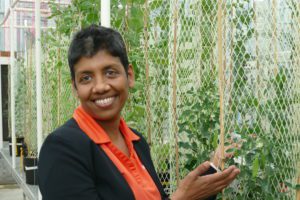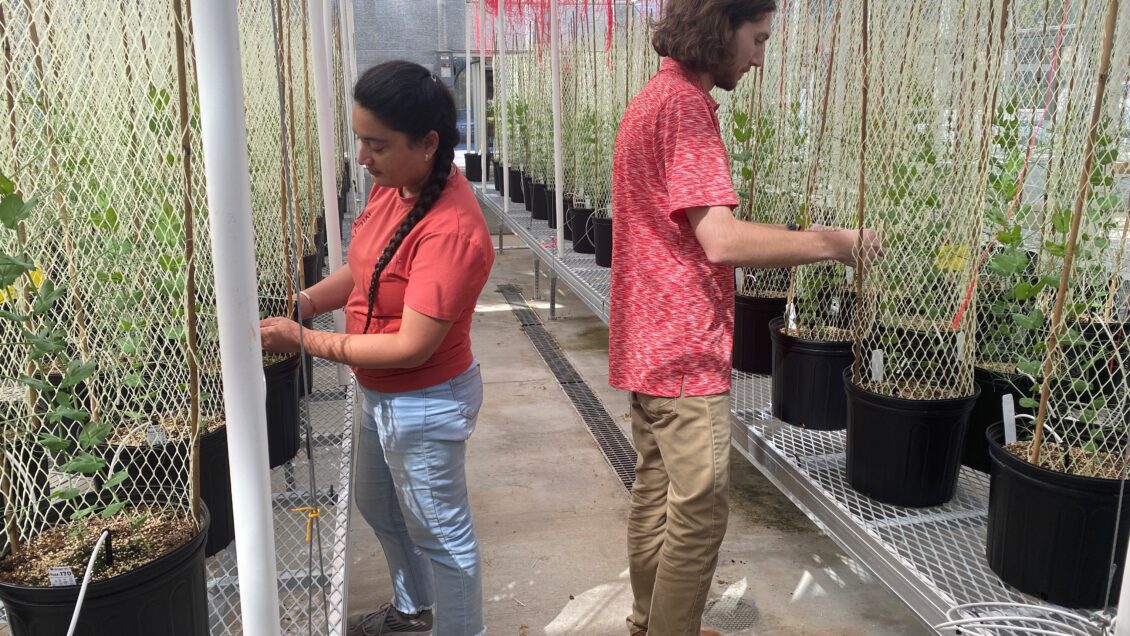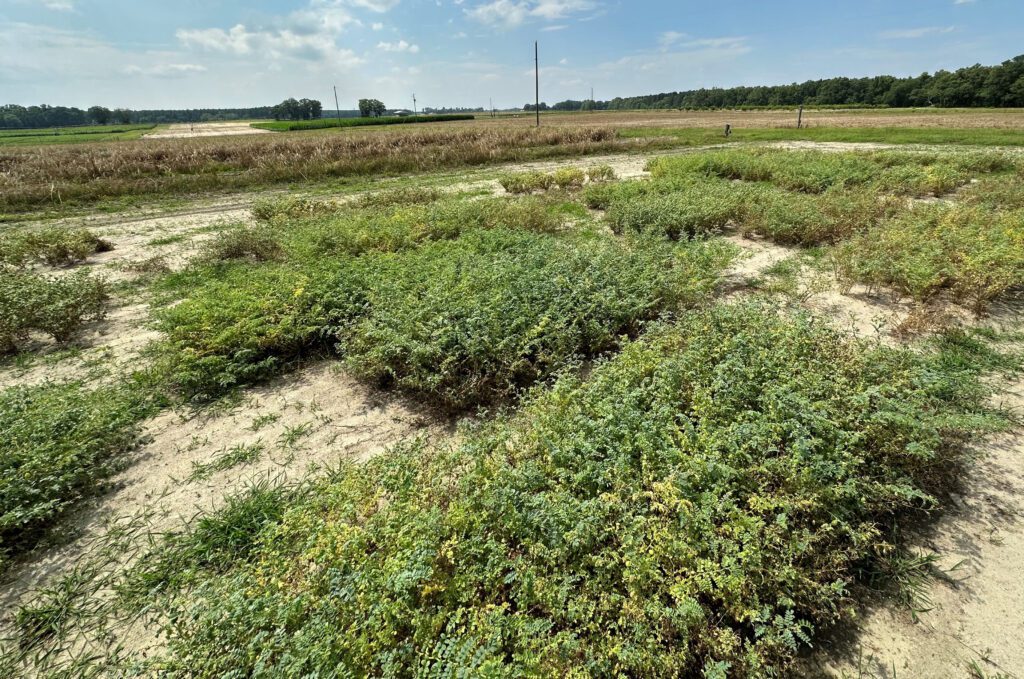Clemson, South Carolina, USA
October 30, 2023
Our goal is to grow chickpea that will allow for the creation of a better-quality hummus.
Dil Thavarajah, Clemson Pulse Quality and Nutritional Breeding Program
Clemson University plant scientists are making discoveries that could lead to South Carolina growing its own chickpea variety, benefiting consumers, growers and the state’s economy.
Clemson doctoral student Sonia Salaria and professor Dil Thavarajah recently discovered genes responsible for fatty acid production in chickpea while breeding for varieties to grow in South Carolina.

Dil Thavarajah
Fatty acids provide texture and flavor in chickpea. They also control blood cholesterols, obesity and cardiovascular diseases in humans. In addition, fatty acids help chickpea plants cope with environmental conditions such as cold and drought stress.
“Our goal is to grow chickpea that will allow for the creation of a better-quality hummus,” said Thavarajah, who leads the Clemson Pulse Quality and Nutritional Breeding Program.
Chickpeas are produced in Idaho, Washington, Oregon, Montana, North Dakota, South Dakota, Nebraska, Colorado and California. In this study, the researchers aim to identify cultivars that can adapt to South Carolina’s hot, humid climate so that chickpea can be grown as a cash crop, replacing cover crops during the winter.
 Clemson graduate students Sonia Salaria and Tristan Lawrence assist in research that could lead to South Carolina growing its own chickpea.
Clemson graduate students Sonia Salaria and Tristan Lawrence assist in research that could lead to South Carolina growing its own chickpea.
“Once chickpea is established in South Carolina, growers will be able to reap the benefits of cover crops such as soil health and erosion protection, as well as make profits from the sale of chickpea produce,” Salaria said.
George Vandemark, United States Department of Agriculture’s Agriculture Research Service geneticist in Pullman, Washington, will provide germplasm to develop chickpea cultivars for the southeastern United States.
“These genetic materials have excellent yield potential and seed traits that are essential for market acceptance, including seed shape, large seed size and beige seed coats,” Vandemark said. “Using these materials as parents will contribute desirable market traits to Dr. Thavarajah’s breeding program.”
After a cultivar has been developed for South Carolina, Clemson Cooperative Extension Service agents will provide growers with information needed to include chickpea as a winter cash crop.
Chickpea must be processed soon after it is harvested. Included in the project are plans for building local processing facilities.
Read more: https://bit.ly/Chickpea_FattyAcids_Study.
 Chickpeas planted at the Edisto REC in Blackville, S.C. are helping Clemson scientist determine how to grow chickpea as a winter cash crop in South Carolina.
Chickpeas planted at the Edisto REC in Blackville, S.C. are helping Clemson scientist determine how to grow chickpea as a winter cash crop in South Carolina.
Funding for this project includes a grant from the United States Agency for International Development (USAID). The grant is related to USAID’s Feed the Future Innovation Lab Crop Improvement Program, created to encourage the development of global crop improvement research-for-development activities.
Additional funding is provided through the USDA-ARS, the South Carolina Department of Agriculture and Clemson University Public Service and Agriculture.